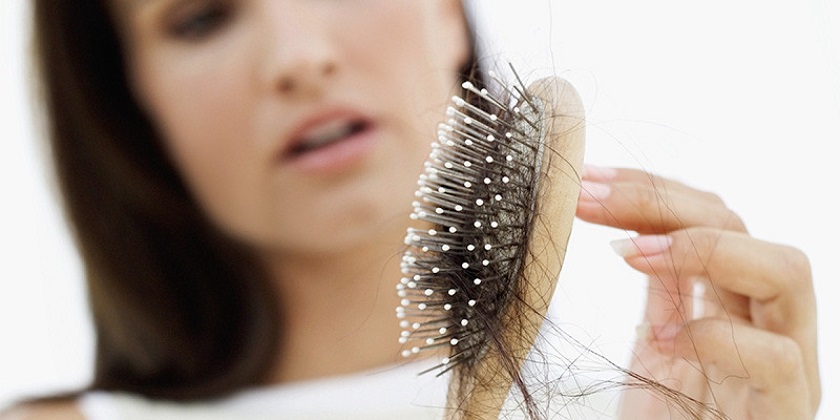- Home
- hair loss treatment

Overview
Hair loss, also known as alopecia or baldness, refers to a loss of hair from part of the head or body. Typically at least the head is involved. The severity of hair loss can vary from a small area to the entire body. Typically inflammation or scarring is not present.Hair loss in some people causes psychological distress.
Common types include: male-pattern hair loss, female-pattern hair loss, alopecia areata, and a thinning of hair known as telogen effluvium. The cause of male-pattern hair loss is a combination of genetics and male hormones, the cause of female pattern hair loss is unclear, the cause of alopecia areata is autoimmune, and the cause of telogen effluvium is typically a physically or psychologically stressful event.
Treatment of pattern hair loss may simply involve accepting the condition. Interventions that can be tried include the medications minoxidil (or finasteride) and hair transplant surgery. Alopecia areata may be treated by steroid injections in the affected area, but these need to be frequently repeated to be effective. Hair loss is a common problem. Pattern hair loss by age 50 affects about half of males and a quarter of females. About 2% of people develop alopecia areata at some point in time.
Treatment of pattern hair loss may simply involve accepting the condition. Interventions that can be tried include the medications minoxidil (or finasteride) and hair transplant surgery. Alopecia areata may be treated by steroid injections in the affected area, but these need to be frequently repeated to be effective. Hair loss is a common problem. Pattern hair loss by age 50 affects about half of males and a quarter of females. About 2% of people develop alopecia areata at some point in time.
Major causes of hair loss
- While some conditions are medically-related, others are caused by more natural or artificial factors. And unknown to most of us, many of these things can either serve as the trigger that will cause us to start losing our hair, or the factor that can aggravate or worsen your already-existing condition.
- Food. Hair growth is dependent on nutrients that the body possesses, much like most psychological functions, so the absence of certain nutrients as well as the excess or oversupply of some can affect the hair growth cycle.
- A diet that is poor or lacking in certain nutrients, particularly iron, protein, and vitamin B, which are essential in the production of keratin, can cause a long telogen phase and a very short anagen stage. On the other hand, excess supply of vitamin A in the body, especially those taken through supplements, can prove to be toxic and can cause a range of adverse body effects including loss of appetite, fatigue and consequently, hair loss.
- Certain foods have also been found to aggravate or worsen hair fall, such as sugar, which triggers the overproduction of the male hormone, androgen, which in turn causes the hair follicles to shrink in size and for hair to fall out or stop growing. Fish products that are known to contain high levels of mercury like tuna, mackerel and swordfish can also cause hair weakening and excessive hair fall. Studies have also found that fried foods are associated with the production of high levels of DHT.
- Bodily activity. Stress caused by physical or emotional trauma, such as surgery or psychological stress, can take the toll on the body and can manifest in negative effects including hair fall. Diet regimens that result into sudden weight loss can also cause physiological trauma that can lead to hair shedding and thinning.
- Wearing a cap does not make men go bald. While it's true that pulling on one's hair can cause hair loss - in women - wearing a baseball cap does not pull at one's hair, causing it to shed. Experts have argued that the cap would have to be worn too tight on the head for it to put pressure that can cause damage and hair loss.
- Another misconception to correct is that staying out in the sun can cause hair loss. The radiation can damage the hair shaft, make it more dry and brittle and more prone to breakage, but does not cause permanent hair loss, especially among men.

